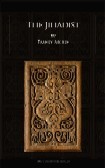
The Jihadist
Emery More
8th House Publishing
$15.88
paper
96pp
978-0-980910889
Inigo suffers from “a lugubrious state of mind,” spending far too much time brooding in his apartment, feeling both alienated from society and drawn to a grand but uncertain purpose: “the more steps he took in its pursuit, the tighter was that mesh which held the seat of his being wound until a tension was created and storms unleashed and the waters blown up and the whole world about him plunged into darkness impenetrable.” The melodrama is suffocating and makes Inigo appear more manic-depressive than long-suffering.
Despite the book’s provocative title, More strips his story of religion and politics, a problematic approach to a subject fundamentally linked to both. It is hard to believe that the vague anxieties and frustrations that plague Inigo could lead him to his final act – though what exactly he is acting against is unclear. Any connection between Inigo’s ranting and actual jihad remains tenuous.
The text offers enticing clues: Inigo’s father was killed overseas by a bomb; Inigo steals library books on a subject that is hidden from the reader; a pamphlet he carries in his pocket is emotionally connected to feverish fantasies of revenge. Unfortunately, these clues remain mysterious and are never developed into a coherent storyline, leaving the impression that The Jihadist is incomplete.
Ultimately the story – a short story stretched into a novella – remains too ambiguous to capture the reader’s attention.
mRb





0 Comments